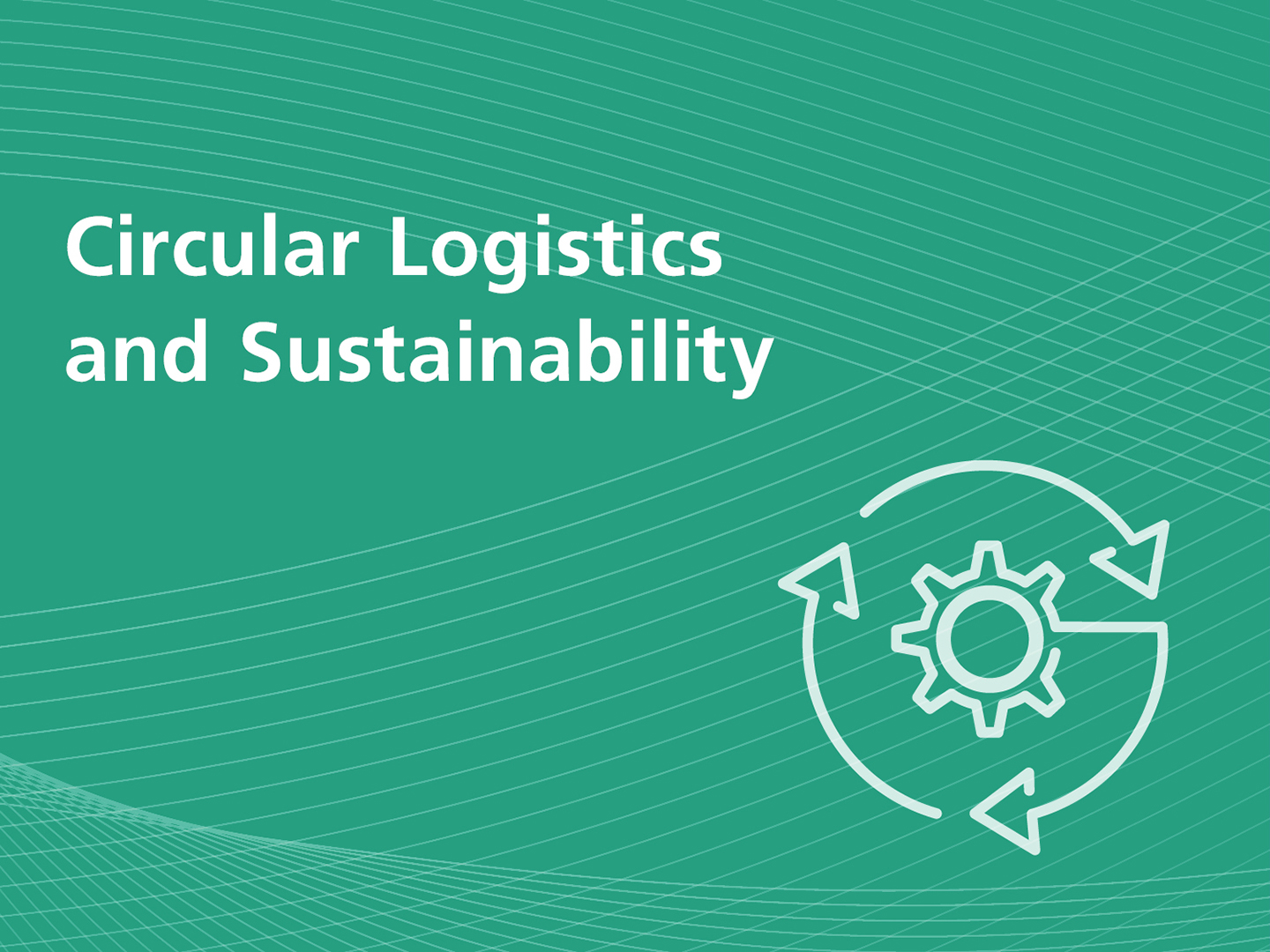Charlotte Joachimsthaler works in the Research Department "Circular Logistics and Sustainability". Her focus is on the analysis and modeling of circular supply chains of different plastics and plastic-containing products. Here, she sees the challenge of maintaining a balance between extensive system complexity of the supply chains and simplicity that is tangible for analysis and evaluation.

What are you working on at Fraunhofer CCPE? What creative ideas are you currently pursuing in your research area?
In the cluster, I work on the analysis and modeling of circular supply chains of different plastics and plastic-containing products. In this context, I am working on solutions to methodological challenges, such as heterogeneous and insufficient data and data sources. On the other hand, I identify volume potentials and influencing factors of the ecological performance of supply chains and related logistics processes.
Do you have a concrete project example respectively why is this interesting for the industry/society?
In cooperation with industry partners, we at Fraunhofer IML have already carried out, for example, a large number of ecological assessments of a wide variety of packaging systems that are made entirely or at component level from plastic. Circular economy approaches at packaging and material level, but also the use of alternative plastics, such as bio-based and/or biodegradable plastics, are increasingly coming to the fore. Depending on the subject under investigation, a wide range of design and process alternatives are considered, analyzed and compared, particularly in the area of logistical transport, handling and storage processes. The result is an efficient evaluation of different scenarios considering various control factors and parameters for the derivation of an effective strategy for resource conservation for logistics service providers, manufacturers and other customers.
What makes your work stand out?
One particular task is to maintain the balance between extensive system complexity of supply chains and simplicity that is tangible for analysis and evaluation. Here, it is important to look at the big picture with different perspectives without neglecting specific requirements of diverse products, materials or processes related to plastics. With goal orientation and a systematic approach we manage the balancing act between diversity and representation of improvement potentials. We are able to derive not only theoretical requirements but also feasible measures for the evaluability and improvement of circular supply chains and to accompany them in society and industry.
What is your highlight from almost 5 years of Fraunhofer CCPE?
I have been working in the cluster since June 2022 and was able to attend a networking meeting in mid-September. I particularly enjoyed getting to know each other personally, the constructive exchange and the collaboration with people from a wide range of disciplines working towards a common goal. I was particularly impressed by the interdisciplinary nature of the cluster and the resulting broad range of topics. In this context, the requirement of practical relevance and relevance for society and industry is always made. Highly relevant research needs will be addressed in greater depth and the necessary expertise will be bundled in a targeted manner. As a result, the cluster has suitable contact persons and working groups not only for overarching but also for specific issues.
